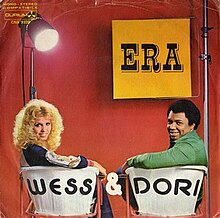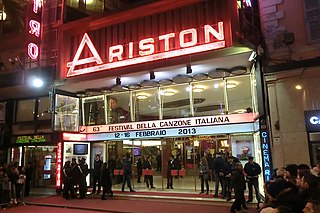
The Sanremo Music Festival,officially the Italian Song Festival,is the most popular Italian song contest and awards ceremony,held annually in the city of Sanremo,Liguria,organized and broadcast by Italian public broadcaster RAI. It is the longest-running annual TV music competition in the world on a national level and it is also the basis and inspiration for the annual Eurovision Song Contest.
Salvatore "Toto" Cutugno was an Italian pop singer-songwriter,musician,and television presenter. He was best known for his worldwide hit song,"L'Italiano",released on his 1983 album of the same title. Cutugno also won the Eurovision Song Contest 1990 held in Zagreb,SFR Yugoslavia,with the song "Insieme:1992",for which he wrote both the lyrics and music. He has been described as "one of the most popular singers in Italy and a symbol of Italian melody abroad",as well as "one of the most popular Italian performers on a global scale" and "one of the most successful Italian songwriters of all time",selling over 100 million records worldwide.

Italy has participated in the Eurovision Song Contest 49 times since making its debut as one of only seven countries to compete at the first contest in 1956,which took inspiration from the Sanremo Music Festival. The Italian participant broadcaster in the contest is Radiotelevisione italiana (RAI). It competed at the contest without interruption until 1980,discontinuing its participation on a number of occasions during the 1980s and 1990s. After a 13-year absence starting in 1998,the country returned to the contest in 2011. Italy has won the contest three times,along with an additional 16 top-five finishes. Italy hosted the contest in Naples (1965),Rome (1991),and Turin (2022).

"Nel blu,dipinto di blu",popularly known as "Volare",is a song originally recorded by Italian singer-songwriter Domenico Modugno,with music composed by himself and Italian lyrics written by himself and Franco Migliacci. It was released as a single on 1 February 1958.
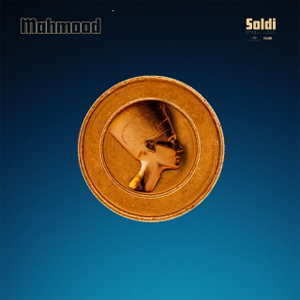
"Soldi" is a song recorded by Italian singer Mahmood. It was released on 6 February 2019,as the fifth single from his debut studio album,Gioventùbruciata (2019). Mahmood co-wrote the song with Dario "Dardust" Faini and Charlie Charles,who also produced it.

Gian Luigi "Gianni" Morandi is an Italian pop singer,actor and entertainer. It is estimated that Morandi has sold about 50 million recordings.

"Non ho l'età",usually given as just "Non ho l'età" is a song recorded by Italian singer Gigliola Cinquetti,with music composed by Mario Panzeri and lyrics by Nicola Salerno. It represented Italy in the Eurovision Song Contest 1964,held in Copenhagen,winning the contest,having previously won that year's Sanremo Music Festival.

Anna Hoxha,known professionally as Anna Oxa,is an Italian and Albanian singer,actress and television presenter. She has received mainstream popularity and recognition within Italy due to her numerous participations in the Sanremo Music Festival.
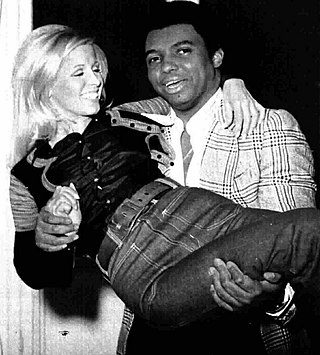
Wesley Johnson known by his stage name Wess was an American-born Italian singer and bass guitarist,perhaps mostly known for representing Italy along with Dori Ghezzi at the Eurovision Song Contest 1975 in Stockholm,Sweden,placing third with the song "Era".

Dori Ghezzi is an Italian singer who was active as a recording artist between 1966 and 1989. In the 1970s,Ghezzi worked mainly in a duo with American singer Wess,and the couple represented Italy in the 1975 Eurovision Song Contest.

Fabrizio Mobrici,known by his stage name Fabrizio Moro,is an Italian singer-songwriter. He released his debut album in 2000 and he achieved commercial success in 2007,after winning the Newcomers' Section of the Sanremo Music Festival with his entry "Pensa". The song became a number-one hit in Italy,while the album with the same title was certified gold by the Italian Music Industry Federation.

The Sanremo Music Festival 2014,officially the 64th Italian Song Festival,was the 64th annual Sanremo Music Festival,a televised song contest held at the Teatro Ariston in Sanremo,Liguria,between 18 and 22 February 2014 and broadcast by Rai 1. Fabio Fazio and Italian comedy actress Luciana Littizzetto presented the show.
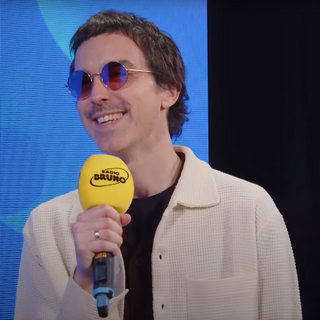
Antonio Diodato,known simply as Diodato,is an Italian singer-songwriter. He won the 70th edition of the Sanremo Music Festival with the song "Fai rumore" and was scheduled to represent Italy in the Eurovision Song Contest 2020 in Rotterdam before the event's cancellation due to the COVID-19 pandemic.
Andrea Lo Vecchio was an Italian composer,lyricist,record producer,singer-songwriter and entrepreneur.

Cristiano Minellono is an Italian songwriter and actor. He is also known as Popi Minellono.
Mario Panzeri was an Italian lyricist and composer. He is well known for his composed songs that include "Maramao perchései morto?" "Pippo non lo sa","Lettera a Pinocchio",and "Grazie dei fiori",which won the first edition of the Sanremo Music Festival in 1951.

"Non mi avete fatto niente" is a song performed by Italian singers Ermal Meta and Fabrizio Moro. The song was released as a digital download on 7 February 2018 as the lead single from the respective albums by each artist:Non abbiamo armi and Parole rumori e anni. It won the Sanremo Music Festival 2018 and represented Italy in the Eurovision Song Contest 2018 in Lisbon,Portugal. On 30 March 2018,the shortened version for Eurovision was released on Spotify.
The Sanremo Music Festival 1956,officially the 6th Italian Song Festival,was the sixth annual Sanremo Music Festival,held at the Sanremo Casino in Sanremo between 8 and 10 March 1956. The show was presented by actor Fausto Tommei,assisted by television announcer Maria Teresa Ruta.
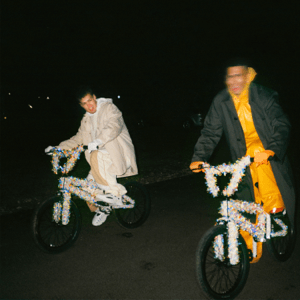
"Brividi" is a song by Italian singers Mahmood and Blanco,released by Island Records and Universal Music on 2 February 2022. It was the winner of the Italian Sanremo Music Festival 2022 and Italy's entry at that year's Eurovision Song Contest.
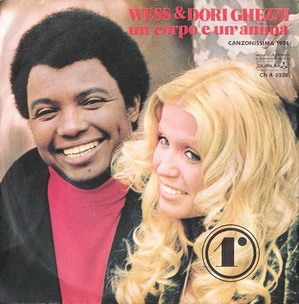
"Un corpo e un'anima" is a 1974 song recorded by Wess and Dori Ghezzi.
